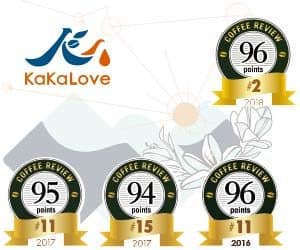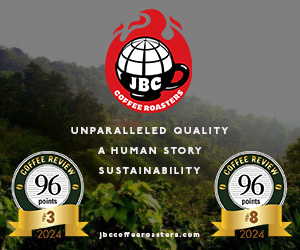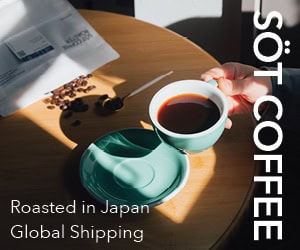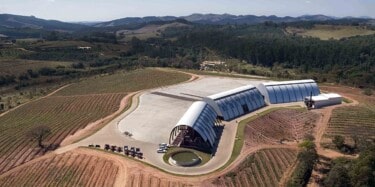A blend of Typica, Red Bourbon and Red Catuai varieties of Arabica produced by Miranda Farms and JN Farms, processed using a proprietary method involving wine yeasts. The decaffeinated coffees were processed by Kona Decaf in Holualoa using pressurized carbon dioxide gas rather than chemical solvents to remove about 50% of the total caffeine, making this a “half-caf” coffee rather than a coffee
SEARCH RESULTS
Guatemala Los Santos
Produced by smallholding farmers, from trees of the Bourbon, Caturra, Typica and Catuai varieties of Arabica, and processed by the washed method. Temple Coffee is a quality-focused retail and wholesale specialty roaster active in Sacramento, California since 2005. Committed to sourcing, roasting and brewing the finest coffees, Temple features coffee from distinguished single estates and
Chiapas Chimhucum Semi-Washed
Produced by smallholding farmers in the Los Altos region of Chiapas from trees of the Caturra, Catuai and Sarchimor varieties of Arabica, and processed by the semi-washed, or “miel” (honey) method, in which in which the skins are removed from the fruit but some of the fruit flesh (mucilage) is allowed to dry on the beans. Badbeard's Microroastery is a Portland, Oregon-based small-batch roaster
Mexico Nyarita Canela
Produced by smallholding members of the TAMBOR Cooperative, from trees of the Bourbon, Catuai, Caturra, Typica and Mundo Novo varieties of Arabica, and processed by the natural method (dried in the whole fruit). Mostra Coffee is a women-, minority-, veteran-, and immigrant-owned micro-roaster based in north county San Diego. For more information, visit www.mostracoffee.com.
Mexico FTO
Sourced from family-owned farms organized around the Grupo de Asesores de Producción Orgánica y Sustentables (GRAPOS), a farmers’ group operating in the municipalities of Unión Juárez, Cacahoatan, and Tapachula located within the state of Chiapas, Mexico. Comprised of coffees from the Bourbon, Catuai, Caturra and Typica varieties of Arabica, and processed by the washed method. Certified FTO (Fair
Costa Rica San Gabriel Pina/Canela Anaerobic Honey Espresso
Produced at San Gabriel Farm, from trees of the Caturra and Catuai varieties of Arabica, and processed by the anaerobic honey method (beans, skin removed, are fermented in a hermetically sealed container before drying). Cinnamon and pineapple also were added to the tank during fermentation. GK Coffee is a nano-roastery in Yilan, Taiwan that offers both retail and wholesale coffee. For more
Costa Rica La Chumeca
Produced at Finca Trinidad from trees of the Caturra and Catuai varieties of Arabica, and processed by the natural method (dried in the whole fruit). Founded in 1990, Roadmap CoffeeWorks, formerly Lexington Coffee Roasters, is an award-winning artisan roasting company based in Lexington, Virginia. Roadmap CoffeeWorks focuses on producing fresh, distinctive and sustainable coffees. Visit
Classic Blend
Produced by various smallholding farmers in Nicaragua and Guatemala from trees of the Caturra, Catuai, Bourbon, Catimor, Pacamara, Maracaturra, Pacas, and Typica varieties of Arabica, all processed by the washed method (fruit skin and flesh are removed from the beans before they are dried). Nostalgia Coffee Roasters is a woman-owned specialty coffee roaster founded by Taylor Fields in 2018 as a
Costa Rica Los Torres Microlot Black Honey
Produced by the Urena family from trees of the Red and Yellow Catuaí, Caturra and Villa Sarchi varieties of Arabica, and processed by the black honey method, in which the skins are removed from the fruit but virtually all of the fruit flesh or mucilage is allowed to dry on the beans. Rusty Dog Coffee is a Madison, Wisconsin-based specialty coffee roaster. Visit www.rustydogcoffee.com for more
Guatemala ASPROCDEGUA Women Producers
Produced by 664 smallholding women farmers of the ASPROCDEGUA Producer's Association, from trees of the Bourbon, Caturra, Catuai and Pache varieties of Arabica, and processed by the washed method. Founded in 2011, Yellow Brick Coffee is a specialty roaster and cafe in Tucson, Arizona. Visit www.yellowbrickcoffee.com for more information.
Costa Rica Naranjo Danilo Salazar Arias
Produced by Danilo Salazar Arias of San Cristobal Farm, from the Catuai, Caturra and Villa Sarchi varieties of Arabica, and processed by the natural method (dried in the whole fruit). Founded in 1994, Coffee By Design is a specialty coffee roaster in Portland, Maine that also operates three coffee shops in town, as well as one in Freeport. Visit www.coffeebydesign.com.
Honduras COMSA Oscar Omar Alonzo
Produced by Oscar Omar Alonzo of Finca Cual Bicicleta, entirely of the Catuai variety of Arabica, and processed by the honey method in which some of the fruit flesh is left on the coffee seed during the drying process. Founded in 1994, Coffee By Design is a specialty coffee roaster in Portland, Maine that also operates three coffee shops in town, as well as one in Freeport. Visit
Brazil Natural Veloso Estate
Produced by the Veloso family at Fazenda Santa Cecilia entirely of the Yellow Catuaí variety of Arabica, and processed by the classic natural method (dried in the whole fruit). Min Cafe Enjoy is a Taipei-based nano-roaster. Visit www.facebook.com/minenjoycafe/photos/ for more information.
Sítio Pedra Menina
Produced by Weber Teixeira Lacerda entirely of the Red Catuaí variety of Arabica, and processed by the pulped natural (also called semi-washed or honey) method (skins are removed but the sticky fruit flesh is allowed to dry on the beans). Mostra Coffee is a women-, minority-, veteran-, and immigrant-owned micro-roaster based in north county San Diego. For more information, visit
Brazil Red Catuaí Double-Anaerobic
Comprised entirely of the Red Catuaí variety of Arabica and processed by the anaerobic natural method (fermentation of the whole fruit occurs in a hermetically sealed, oxygen-free vessel before the fruit is dried). Spix’s Cafe is a Taipei-based coffee roaster specializing exclusively in coffees from Brazil. Visit https://www.facebook.com/SpixsCafeEspecialTaiwan/ for more information.
Brazil Legender Sitio Taquara Natural
Produced by Roberto Bernardes of Sitio Taquara entirely of the Yellow Catuaí variety of Arabica, and processed by the pulped natural method (the outer skin of the coffee fruit is removed as it is in the wet or “washed” method, but the sticky fruit residue is allowed to dry on the bean and later removed by machine along with the parchment skin). Willoughby’s Coffee & Tea is a pioneer specialty
Brazil Naturals: Tradition and Innovation
When I first opened a specialty café in Berkeley, California 40 years ago, a Brazil always appeared among the standard whole-bean coffee offerings in the 10 or so glass-fronted bins that held our whole-bean coffees. All of the popular and glamorous coffee origins of the time were there: Guatemala Antigua, Kenya AA, Costa Rica Tarrazu, Sumatra Mandheling, Colombia Supremo, and the new,
Ka‘ū Tropical Punch Washed
Produced by Miranda Farms and JN Farms, from the Red Catuai and Red Bourbon varieties of Arabica, and processed by the washed method with the addition of yeasts during the fermentation process. Paradise prides itself on quality and freshness, craft-roasting coffees in small batches only after orders are placed. Visit www.paradiseroasters.com or call 763-433-0626 for more information.
Birambo Village DR Congo
Certified organic and fair trade. Produced by members of the SOPACDI Cooperative, from the Blue Mountain, Bourbon, Caturra, Catuaí, and Kabare 2 varieties of Arabica, and processed by the washed method. Located overlooking Lake Kivu, on the opposite side of the lake from Rwanda, this rapidly growing cooperative now has nearly 6,000 members and is succeeding in its goal to help heal wounds left by
Ka‘ū Lactic Natural
Produced by Miranda Farms, entirely of the Red Catuai variety of Arabica and processed by an experimental natural method involving the inoculation of the cherries with lactic acid-producing organisms in a low oxygen environment for several days, then drying them on screens in a dehumidified room. Paradise prides itself on quality and freshness, craft-roasting coffees in small batches only after












